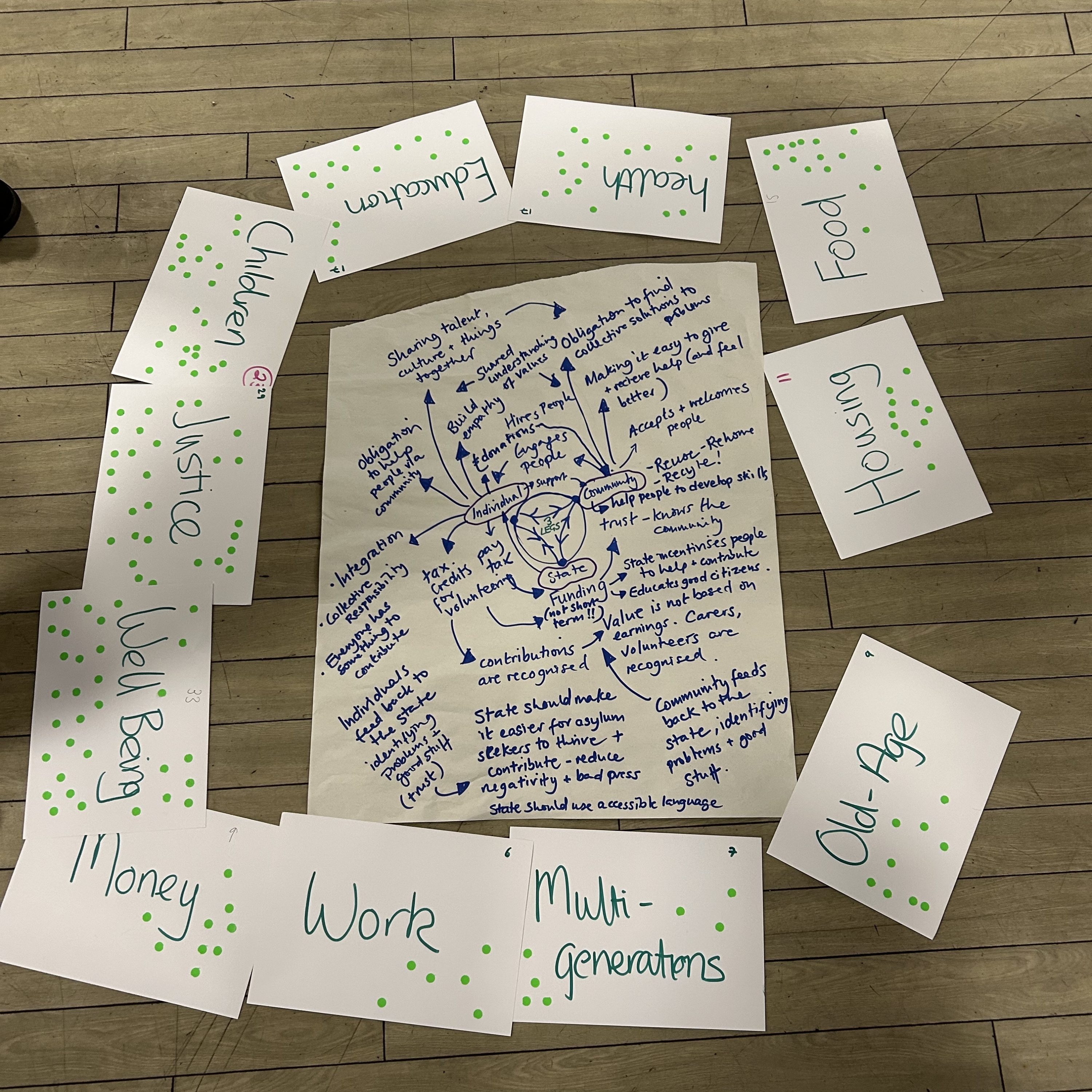Lasting social change only happens when people who have experience of the issue participate in generating the change.

- Members of the Poverty Truth Network
- 19 May 2025
- 2 minute read
Since April 2023, Carnegie UK has been working in partnership with members of the Poverty Truth Community across the UK and undertaking a series of deep listening exercises.
At Carnegie UK, we recognise the role that relationships and social connectedness both play in achieving collective wellbeing. The purpose of this partnership is to learn more about the reality and consequences of inequality in the UK, and together, to create a shared vision of what a society that puts collective wellbeing at the heart of decision-making could and should look like.
In Spring 2025, we spent time with people in Swansea, Coatbridge and Manchester, exploring the theme of a social contract. As part of the residential series, people were asked to consider what a good society should look, sound, and feel like. The poem below provides a snapshot of their responses.
A good society – a poem
A good society looks like a successful team, not a bunch of heroes
A good society looks like whole communities supporting each other with no exclusion and no ‘us and them’
A good society looks like people working together, not against each other.
A good society sounds like a stranger in the street saying: ‘are you lost? Can I help you?’
A good society sounds like a choir, where some voices are alto, bass, tenor and descant
A good society sounds like old people and young people laughing together.
A good society feels like security and freedom at the same time
A good society feels like you are welcome, you belong, you are connected, and that no one can scare you because you are part of something bigger
A good society feels safe for everybody.
A good society looks like a circle of chairs, where everyone has a seat.
A good society sounds like peace.
A good society feels like home.
Help us make the case for wellbeing policy
Keep in touch with Carnegie UK’s research and activities. Learn more about ways to get involved with our work.
"*" indicates required fields